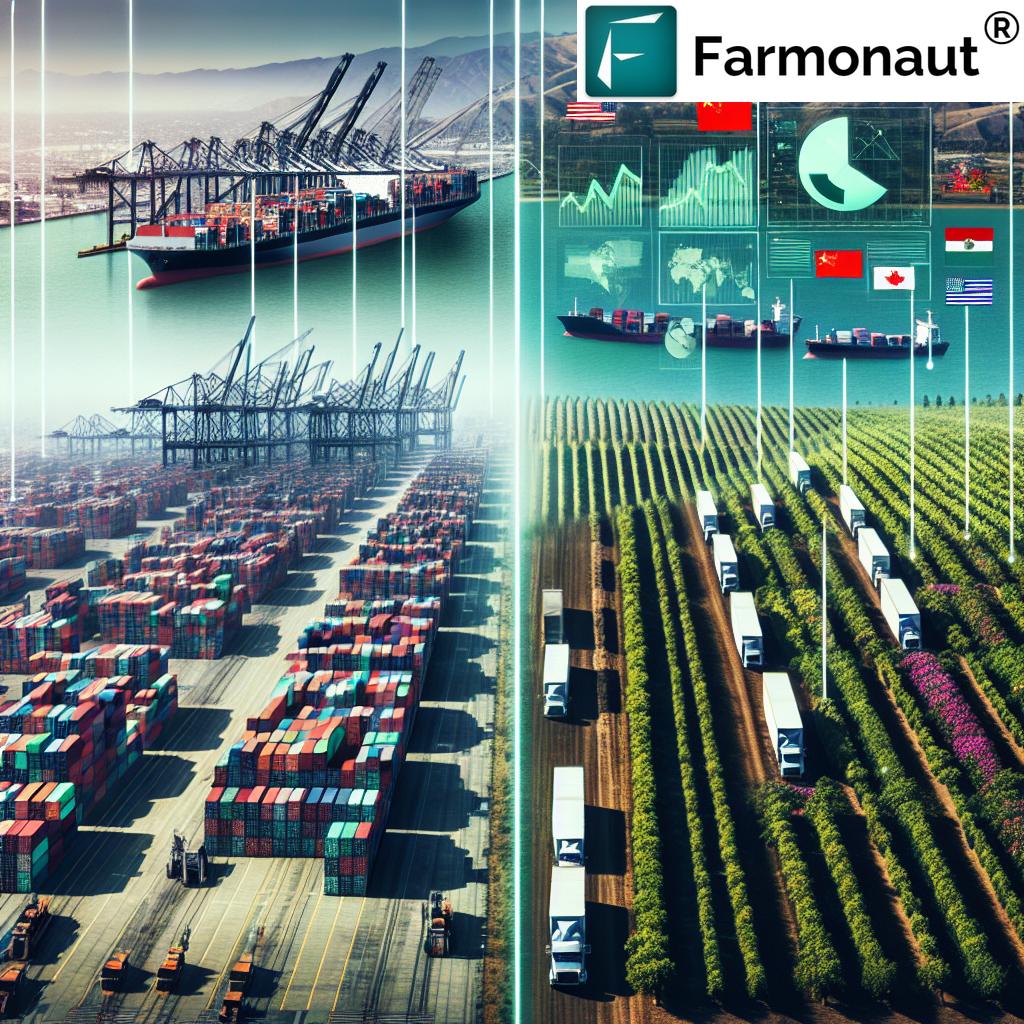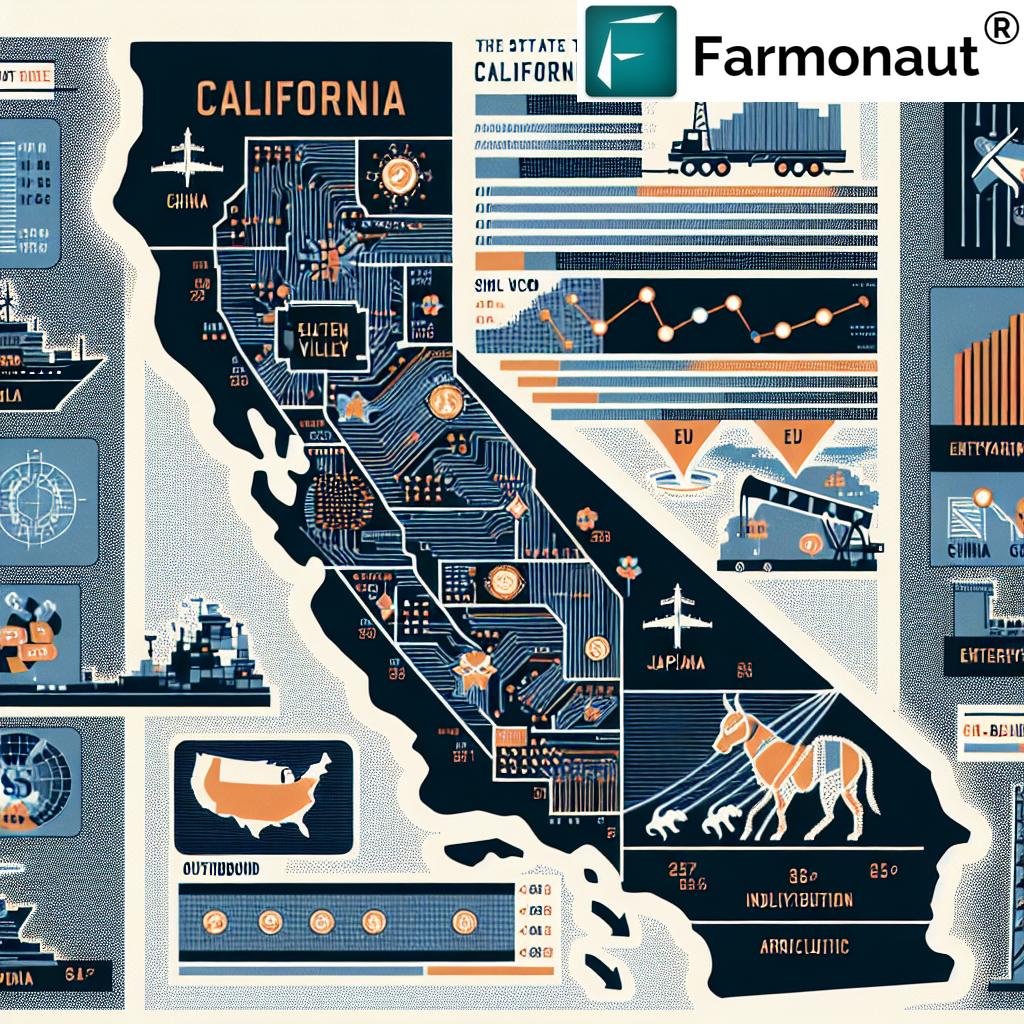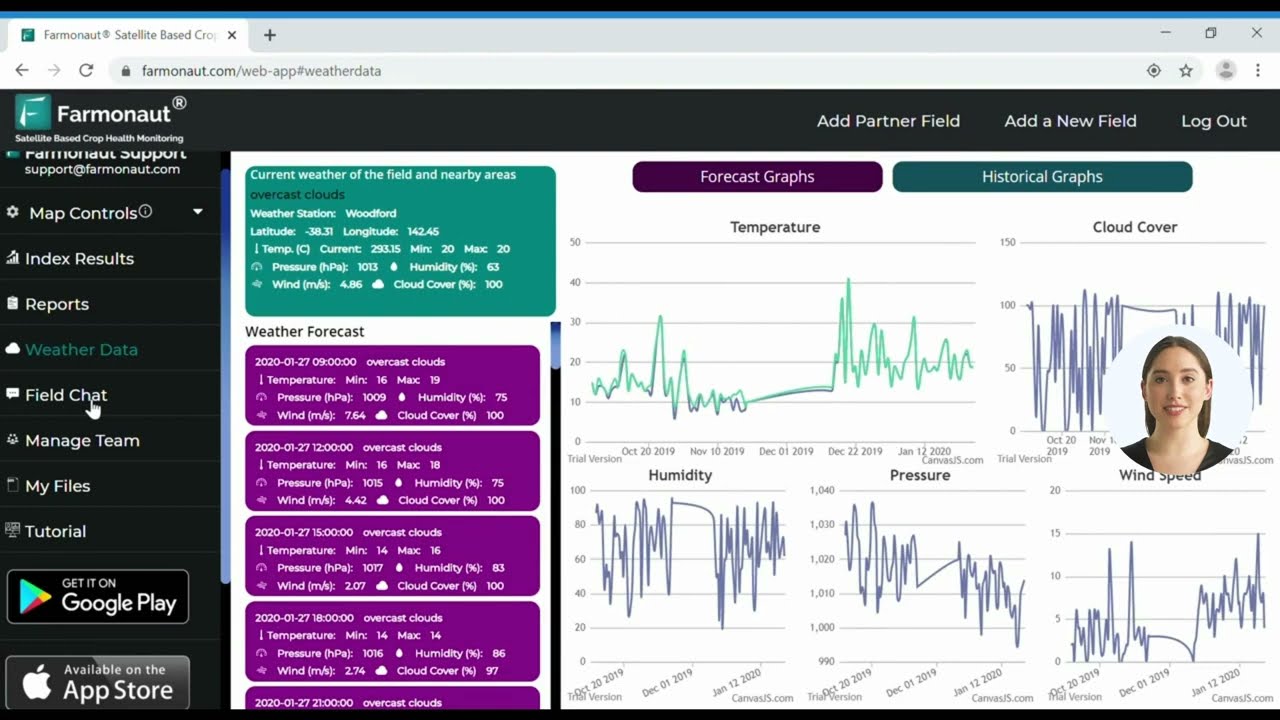California’s Economic Shield: Navigating Global Tariffs and Trade War Impacts
“California’s economy, the 5th largest globally, faces significant challenges from escalating trade tensions and tariffs.”
In the face of escalating global trade tensions and the looming threat of tariffs, California finds itself at a critical juncture. As the world’s fifth-largest economy, the Golden State faces unique challenges in navigating the complex landscape of international trade policies and their potential impacts. In this comprehensive analysis, we delve into the intricate web of economic consequences, political dynamics, and potential strategies that California must consider as it seeks to protect its diverse industries and maintain its economic prowess.
The Tariff Battleground: California in the Crosshairs
As trade negotiations between the United States and its global partners intensify, California stands as a prime target for retaliatory measures. The state’s economic diversity, which has long been a source of strength, now presents a vulnerability in the face of targeted tariffs. From its world-renowned agricultural sector to its cutting-edge technology industry, California’s key economic pillars are squarely in the sights of foreign powers looking to exert pressure on U.S. trade policy.
Governor Gavin Newsom’s recent declaration that California “will not sit idly by during Trump’s tariff war” underscores the gravity of the situation. However, the question remains: What can a state government realistically do in the face of federal trade decisions?

The Limited Arsenal of State-Level Trade Protection
Despite the bold rhetoric, economists and policy experts are skeptical about California’s ability to meaningfully shield its economy from the fallout of a full-scale trade war. The U.S. Constitution grants the federal government exclusive authority over foreign relations and border control, severely limiting the options available to state leaders.
Chris Thornberg, founding partner of Beacon Economics and former director of the UC Riverside School of Business Center for Economic Forecasting and Development, succinctly summarizes the predicament: “According to the Constitution, the Feds have complete control over foreign relations and the borders. That was true when Texas tried to close their border to the immigrants coming from Mexico as it is when Newsom tries to open our borders to foreign exporters.”
This constitutional constraint places California in a precarious position, forcing the state to explore creative solutions within the confines of its limited authority.
Potential Strategies and Their Limitations
- Direct Appeals to Trading Partners: Governor Newsom has suggested making direct appeals to major trading partners like China and the European Union to “exclude California-made products from retaliation.” However, the feasibility of such exemptions remains questionable, given the broad scope of the trade war and the complexities of international trade agreements.
- Regulatory Adjustments: California could potentially roll back state-specific import regulations to make its market more attractive to foreign businesses. However, this approach would likely have limited impact in the face of substantial federal duties.
- Compensation Programs: The state could theoretically implement programs to compensate businesses and industries affected by tariffs. However, this approach raises significant challenges, including the need to raise taxes to fund such initiatives and the difficulty in defining what constitutes a “California business” in an era of global supply chains and transnational corporations.
“Over 40% of US container imports pass through California ports, making the state vulnerable to trade war impacts.”
The Ripple Effects: Beyond Direct Tariff Impacts
The consequences of escalating trade tensions extend far beyond the immediate effects of tariffs on specific industries. California’s economy faces a multitude of indirect challenges that could potentially reshape its economic landscape:
- Supply Chain Disruptions: Many California businesses rely on complex global supply chains. Tariffs and trade restrictions can disrupt these networks, leading to increased costs and potential shortages of critical components.
- Rising Consumer Prices: As import costs increase, consumers are likely to face higher prices for a wide range of goods, potentially dampening consumer spending and economic growth.
- Tourism Impact: California, as a top tourist destination, could see a decline in international visitors due to broader economic uncertainties and potential retaliatory measures targeting the tourism sector.
- Investment Uncertainty: The unpredictable nature of trade negotiations and potential tariff implementations may lead to hesitation among both domestic and foreign investors, potentially slowing economic growth and innovation.
Key Industries in the Crosshairs
California’s diverse economy means that multiple sectors are at risk from escalating trade tensions. Here’s a closer look at some of the key industries that could face significant challenges:
Agriculture
California’s agricultural sector, renowned for its diversity and quality, stands to lose significantly in a protracted trade war. The state’s farmers and ranchers export a wide variety of products, from almonds and wine to dairy and citrus fruits. Retaliatory tariffs from major markets like China and the European Union could severely impact export volumes and profitability.
For instance, California’s almond industry, which accounts for about 80% of the world’s supply, has already faced challenges due to tariffs imposed by China. Any further escalation could lead to oversupply in the domestic market and significant price drops, potentially forcing some producers out of business.
In this context, technologies like those offered by Farmonaut’s crop monitoring platform become increasingly valuable. By providing real-time insights into crop health and optimizing resource use, such tools can help farmers maintain profitability even in challenging market conditions.
Technology and Digital Services
Silicon Valley, the heart of California’s tech industry, faces unique challenges in the current trade environment. While hardware manufacturers are directly impacted by tariffs on components and finished products, software and digital service providers are increasingly targeted by retaliatory measures from foreign governments.
For example, France has urged its EU counterparts to target digital and streaming services in negotiations with the U.S. This could potentially impact giants like Google, Facebook, and Netflix, all headquartered in California. The implications extend beyond immediate revenue losses, potentially affecting innovation, job creation, and California’s position as a global tech leader.
Entertainment Industry
Hollywood, another cornerstone of California’s economy, is not immune to the trade war’s effects. The industry relies heavily on international markets for revenue, with China being a particularly crucial market for many big-budget productions. Reports of Chinese bloggers affiliated with the state discussing specific targeting of Hollywood underscore the vulnerability of this sector.
Potential measures could include limiting the number of U.S. films allowed to be shown in China, imposing additional taxes on Hollywood productions, or encouraging boycotts of American entertainment content. Such actions could significantly impact the profitability of California’s film and television industry, potentially leading to job losses and reduced production budgets.

The Political Dimension: California’s Response in a National Context
While Governor Newsom’s options for direct economic intervention may be limited, the trade war presents significant political opportunities. As a prominent Democratic figure with potential national ambitions, Newsom’s response to the trade crisis is being closely watched.
The governor’s swift and forceful reaction to President Trump’s tariff announcements positions him as a leading voice in the opposition to the administration’s trade policies. This stance aligns with a broader Democratic message that the current trade strategy is hurting American businesses and consumers, contradicting campaign promises to lower prices and responsibly manage the economy.
However, Newsom is not alone in seizing this political moment. Other Democratic governors, such as JB Pritzker of Illinois, are also taking proactive steps, including leading trade missions abroad. This competition to be seen as effective defenders of state economies against federal trade policies could shape the national political landscape in the coming years.
Economic Projections and Warning Signs
The potential economic consequences of an escalating trade war are significant, with major financial institutions issuing stark warnings. Goldman Sachs, JP Morgan Chase, and BlackRock have all cautioned about a weakening economy, rising inflation, and increased risks of recession as a result of new tariff policies.
While President Trump’s recent decision to pause or reduce some planned tariffs has provided temporary relief, the underlying tensions and uncertainties remain. For California, these macroeconomic trends could translate into:
- Reduced export opportunities for key industries
- Increased costs for businesses relying on imported components or materials
- Potential job losses in sectors directly impacted by tariffs or retaliatory measures
- Decreased consumer spending power due to higher prices on imported goods
- Reduced foreign investment in California businesses and real estate
In this challenging environment, businesses across various sectors are seeking ways to optimize their operations and reduce costs. For agricultural businesses, solutions like Farmonaut’s crop loan and insurance verification tools can help streamline access to financing and protect against losses, providing a vital safety net in uncertain times.
The Role of Technology in Mitigating Trade War Impacts
As California grapples with the challenges posed by global trade tensions, technology emerges as a potential mitigating factor. Advanced technological solutions can help businesses adapt to changing market conditions, optimize operations, and maintain competitiveness even in the face of increased costs and market restrictions.
For instance, in the agricultural sector, precision farming technologies like those offered by Farmonaut can play a crucial role. By leveraging satellite imagery and AI-driven insights, farmers can optimize resource use, reduce waste, and potentially offset some of the financial impacts of tariffs through improved efficiency and yield management.
Similarly, in the manufacturing and logistics sectors, advanced fleet management solutions can help companies optimize their supply chains, reduce transportation costs, and improve overall operational efficiency. This can be particularly valuable for businesses facing increased costs due to tariffs on imported components or materials.
The Global Context: California’s Place in International Trade Negotiations
While California’s direct influence on international trade policy is limited, the state’s economic significance gives it a unique position in the broader context of global trade negotiations. As home to some of the world’s largest technology companies, a major agricultural exporter, and a key gateway for Pacific trade, California’s interests are inextricably linked to the outcomes of these negotiations.
Key considerations in this global context include:
- Relations with China: As California’s third-largest trading partner, China plays a crucial role in the state’s economic landscape. The ongoing tensions between the U.S. and China have direct implications for California’s tech industry, agricultural exports, and port activity.
- European Union Dynamics: The EU’s approach to digital taxation and regulation of tech companies has significant implications for California-based tech giants. Any retaliatory measures targeting these companies could have outsized effects on the state’s economy.
- Pacific Rim Trade: California’s ports serve as critical gateways for trade with Asia. Any shifts in trade patterns or volumes due to tariffs or trade agreements can have substantial impacts on the state’s logistics and transportation sectors.
- NAFTA Renegotiation Effects: While the focus has been on China, the renegotiation of NAFTA (now USMCA) also has implications for California, particularly in sectors like agriculture and manufacturing that have integrated supply chains across North America.
In this complex global landscape, businesses are increasingly looking for ways to enhance transparency and traceability in their supply chains. Solutions like Farmonaut’s blockchain-based traceability system can help companies navigate these challenges by providing verifiable data on product origins and journey, crucial for compliance with evolving trade regulations and consumer demands for transparency.
Environmental Considerations in the Trade War Context
The intersection of trade policy and environmental concerns adds another layer of complexity to California’s economic challenges. As a leader in environmental regulations and sustainable business practices, California must navigate how trade tensions might impact its environmental goals and the competitiveness of its green industries.
Key environmental considerations include:
- Carbon Pricing and Border Adjustments: As California continues to lead on carbon pricing through its cap-and-trade program, there are concerns about how this might interact with federal trade policies and potential retaliatory measures from trading partners.
- Renewable Energy Sector: California’s robust renewable energy industry could face challenges if tariffs increase the costs of components for solar panels or wind turbines. Conversely, it could benefit if trade tensions lead to increased domestic production of these technologies.
- Agricultural Sustainability: The state’s efforts to promote sustainable agricultural practices could be undermined if trade pressures force farmers to prioritize short-term profitability over long-term sustainability investments.
- Green Tech Innovation: Trade tensions could potentially stimulate increased investment in domestic green technology development, aligning with California’s leadership in this sector.
In this context, tools for monitoring and managing environmental impacts become increasingly important. Farmonaut’s carbon footprinting solutions can help businesses track and reduce their environmental impact, a critical capability as companies navigate both trade pressures and increasing environmental regulations.
The Road Ahead: Strategies for Resilience
As California navigates the turbulent waters of global trade tensions, businesses and policymakers must focus on building resilience and adaptability. While the state’s options for direct intervention in trade policy are limited, there are several strategies that can help mitigate the impacts and position California for long-term success:
- Diversification of Export Markets: Encouraging businesses to explore new export markets can reduce dependence on countries involved in trade disputes.
- Investment in Innovation: Continued support for research and development can help maintain California’s competitive edge in high-tech and green industries.
- Workforce Development: Investing in education and training programs can help workers adapt to changing economic conditions and industry needs.
- Supply Chain Resilience: Encouraging businesses to diversify their supply chains and explore domestic sourcing options can reduce vulnerability to trade disruptions.
- Digital Transformation: Promoting the adoption of advanced technologies like AI, blockchain, and IoT can help businesses optimize operations and remain competitive.
- Sustainable Practices: Continuing to lead in environmental sustainability can position California businesses advantageously as global demand for sustainable products and practices grows.
For businesses looking to implement these strategies, particularly in the agricultural sector, Farmonaut’s crop plantation and forest advisory services can provide valuable insights and support. These tools can help businesses optimize their operations, reduce risks, and adapt to changing market conditions.
Conclusion: California’s Path Through the Trade Storm
As we’ve explored throughout this analysis, California faces significant challenges in the current global trade environment. The state’s diverse economy, while a source of strength, also presents vulnerabilities across multiple sectors. From agriculture to high-tech, from Hollywood to green energy, California’s industries are feeling the impact of tariffs and trade tensions.
While Governor Newsom and state policymakers have limited direct influence over trade policy, their role in advocating for California’s interests and helping businesses navigate these challenges remains crucial. The state’s response to these challenges will likely shape its economic trajectory for years to come.
In this complex landscape, businesses must focus on adaptability, efficiency, and innovation. Technologies and solutions that enhance transparency, optimize operations, and provide data-driven insights will be invaluable. Companies like Farmonaut, with its suite of agricultural technology solutions, exemplify the kind of innovative approaches that can help businesses thrive even in uncertain times.
Ultimately, California’s economic resilience in the face of global trade tensions will depend on the collective efforts of policymakers, businesses, and innovators. By leveraging its strengths in technology, sustainability, and innovation, California can navigate these challenges and emerge as a model for economic adaptability in the 21st century global economy.
Impact of Global Tariffs on California’s Key Industries
| Industry | Estimated Annual Revenue Impact | Potential Job Losses | Trade Partner Retaliation Risk |
|---|---|---|---|
| Agriculture | $500M – $1B | 10,000 – 20,000 | High |
| Digital Technology | $1B – $5B | 5,000 – 15,000 | Medium |
| Entertainment | $200M – $800M | 2,000 – 8,000 | Medium |
| Tourism | $300M – $1.2B | 5,000 – 25,000 | Low |
FAQ: California’s Economic Response to Global Tariffs
- Q: Can California negotiate its own trade agreements with foreign countries?
A: No, the U.S. Constitution grants the federal government exclusive authority over foreign relations and trade agreements. California cannot independently negotiate binding trade agreements with foreign nations. - Q: How might California’s agriculture industry be affected by retaliatory tariffs?
A: California’s agriculture could face reduced exports, lower prices due to oversupply in domestic markets, and potential loss of market share in key foreign markets, particularly for products like almonds, wine, and citrus fruits. - Q: What options does Governor Newsom have to protect California’s economy from tariff impacts?
A: While limited, options include advocating for California’s interests at the federal level, exploring regulatory adjustments to attract foreign businesses, and potentially implementing support programs for affected industries within the constraints of state law. - Q: How might the tech industry in Silicon Valley be impacted by the trade war?
A: The tech industry could face challenges such as increased costs for hardware components, potential restrictions on access to foreign markets, and retaliatory measures targeting digital services by foreign governments. - Q: Can California compensate businesses for losses due to federal tariffs?
A: While theoretically possible, compensating businesses would be challenging due to budget constraints, the need to raise taxes to fund such programs, and difficulties in defining eligibility criteria for “California businesses” in a global economy.
Earn With Farmonaut: Affiliate Program
Earn 20% recurring commission with Farmonaut’s affiliate program by sharing your promo code and helping farmers save 10%. Onboard 10 Elite farmers monthly to earn a minimum of $148,000 annually—start now and grow your income!
Farmonaut Subscriptions
As California navigates these challenging economic waters, innovative solutions like those offered by Farmonaut can play a crucial role in helping businesses adapt and thrive. Whether it’s optimizing agricultural operations, managing supply chains, or monitoring environmental impacts, technology will be a key ally in building economic resilience.
For developers interested in integrating Farmonaut’s powerful agricultural data into their own applications, check out our API and API Developer Docs.




















